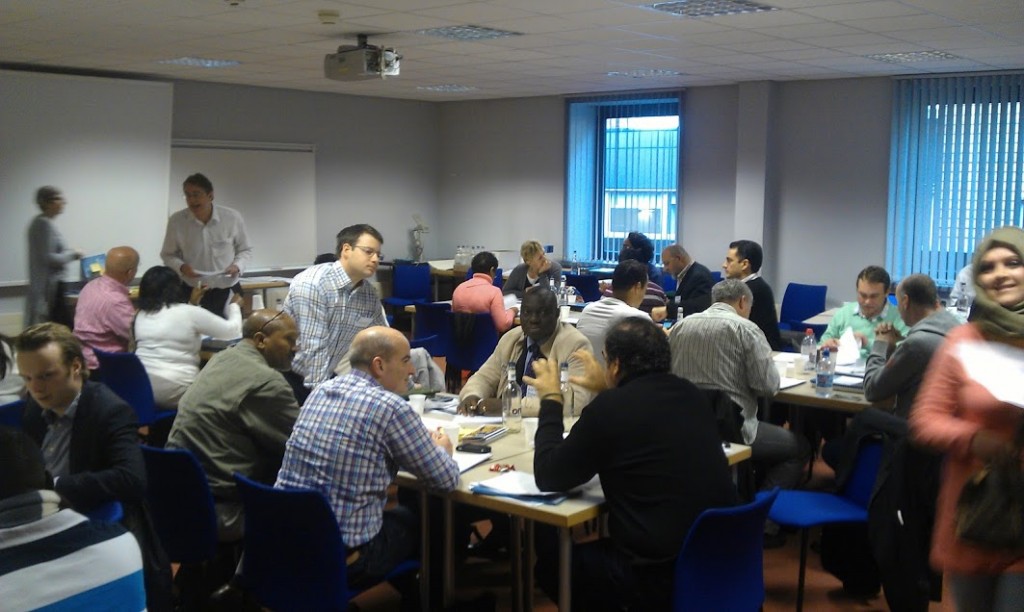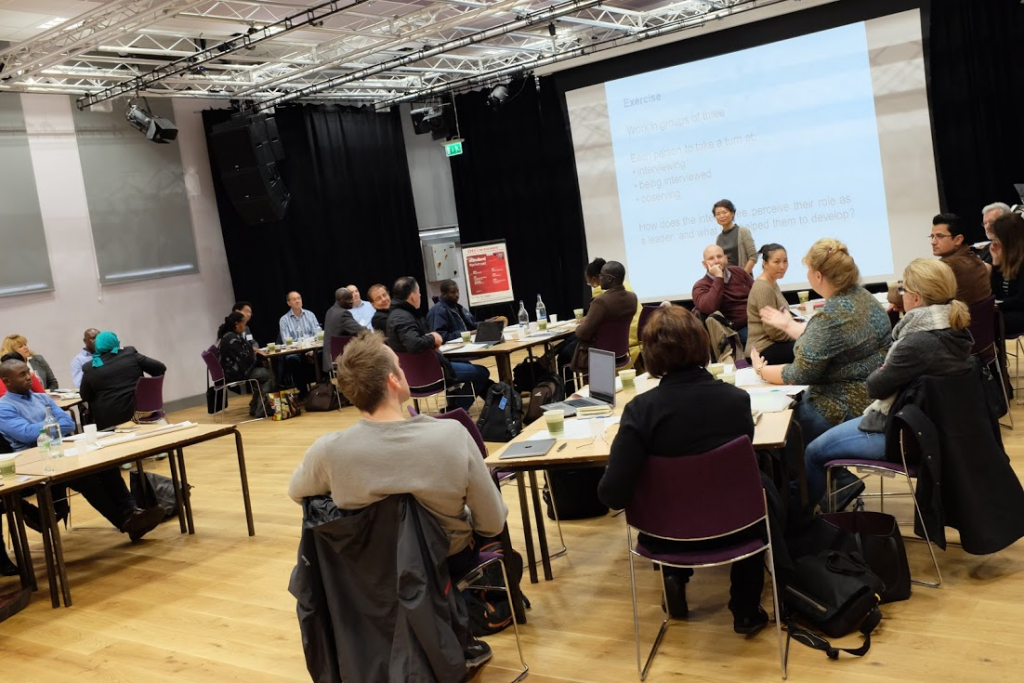When she first enrolled in the MBA in Leadership and Sustainability with Robert Kennedy College (RKC) in partnership with the University of Cumbria, she wasn’t entirely sure what to expect. Like many working professionals, Birgitta had questions: Would online learning feel isolating? Could she really manage postgraduate study alongside a full-time job? Would the content truly challenge and grow her perspective on leadership and sustainability in today’s fast-changing world?
Now well into her studies, Birgitta finds herself reflecting on just how transformative the experience has been.

In this blog, she shares her journey as an online student—what motivated her to choose RKC, how she stays engaged in a digital classroom, and how the programme is shaping her approach to leadership, sustainability, and impact. Whether you’re exploring MBA options or simply curious about the real experience behind online learning, her story offers a personal window into what it means to study with intention, flexibility, and global perspective.
Let’s dive into Birgitta Koskinen’s journey!
What motivated you to pursue your degree online?
I chose to pursue my MBA online because the working world has shifted to a digital environment, and I believe a globally connected online workspace is our present and future. Robert Kennedy College’s close partnership with the University of Cumbria, which was ranked 8th globally for quality education in 2020, further solidified my decision. The Leadership and Sustainability program perfectly aligns with my long-term career advancement goals and my desire to update my degree. It was an opportunity to learn how to be an influential leader now and, in the future, as well as to coach managers and leaders on achieving better results, which is a core mission of the organisation. As an idealist, I also sought to deepen my understanding of organisational behaviour and sustainability within a leadership and business context, as I believe people should be able to thrive and flourish.

Studying online allowed me to fit my studies into my personal life and work schedule. Initially, I was intimidated by the idea of returning to school, and I was also nervous about studying in English—not to mention writing in Harvard style, which frankly terrified me. I’ve always been a poor writer, even in my native language, and I see myself more as a “storyteller.” However, the program’s flexibility—the option to pause my studies or even withdraw—lowered the barrier to entry. The anonymity of online learning initially felt safe. In the end, my youngest child inspired me to leap, telling me, “Mom, it’s now or never—you can do it.” Encouraged by their support, I embraced the challenge in a truly international environment.
How would you describe your overall experience with the online university?
From the very beginning, I noticed that we were truly required to commit, read, and, above all, understand rather than simply memorise. The professors showed incredible professionalism and passion for their subjects, which was contagious and kept me engaged. They simply made me want to push through, even when it felt impossible.
I also faced some personal life challenges during my studies, and the student care team was invaluable with their support and advice. They were always kind and quick to respond, and their helpful, encouraging approach was truly heartwarming. My extensive work experience made it easier to internalise concepts and research findings, as I could directly recognise and relate to them from my professional life.

Overall, the experience exceeded my expectations. I’m honestly speechless. I felt like I was on an international journey from the comfort of my own home, and returning to a purely Finnish work culture was a bit of a shock. If I had completed my degree in my home country, I probably wouldn’t have gained the same genuine understanding of different cultures and the international perspective on the topics.
Which courses or subjects did you find most engaging, and why?
Choosing a favourite course can be tough, as they all offer unique insights. However, my favourite ones were Organisational Behaviour and Leadership and Sustainability.
Why Organisational Behaviour?
This course was incredibly engaging because it provided a deep understanding of human dynamics in the workplace. I learned how to analyse team behaviour, understand different roles, and identify what makes an organisation function effectively. It helped me recognise my own strengths and areas for development, which are crucial for personal and professional growth.
Why Leadership and Sustainability?
I found this course surprisingly profound. It went beyond basic theories and provided a comprehensive look at leadership throughout history, connecting it directly to the needs of the future. It taught me that a leader’s role is not just about managing people, but also about making a positive impact, commitment and so much more to develop sustainable leaders and leadership. This course ignited a passion in me to influence and contribute to a more sustainable world.
How Other Courses Connected
The other courses were also vital. Marketing broadened my perspective on what a leader needs to consider, and Information Management was essential in understanding technological solutions, from cloud computing to data analysis. Lastly, while Financial Management may not have been my passion, I recognised its foundational importance—an organisation can’t function without it. These courses all reinforced the idea that success isn’t about knowing everything, but about understanding the big picture and knowing when to rely on experts.
Which module or subject was the most challenging for you, and how did you approach it?

The most challenging subject for me was Finance Management. It’s funny, because even though I love numbers, I just can’t seem to become an accountant—the same gap I had when I was young was still there. Instead of dwelling on that, I focused on my strengths. The final assessment was a wonderfully challenging assignment that really got my brain working, and I absolutely loved it. The professor made everything admirably simple, which helped a lot. By concentrating on my strengths, I was able to improve my weaknesses.
Can you share any memorable moments or highlights from your academic journey?
One of the most memorable moments of my academic journey was during the Tackling Global-Local Challenges in Ethics, Responsibility and Sustainability course. We watched a video about children in the chocolate industry, and even though the topic was familiar, it was deeply moving and truly highlighted the complexity of global issues. During a workshop, I promised I would never eat chocolate again. At that same moment, a classmate told me, “No, you absolutely should eat it. It’s important and provides a livelihood for entire families.” It was a moment that made me realise my own smallness and the immense complexity of the issue.
This experience is just a small piece of the bigger picture that my studies revealed. I gained countless insights and ideas from my fellow students. They were all incredibly smart, and I’m so grateful for them and their thoughts.
However, the moments that stand out the most are when I was waiting for the Final Assessment results, wondering if I had passed. I approached my studies humbly, progressing one course at a time.
Early on, a professor said something that has stayed with me ever since: “Commit, invest in yourself, and don’t give up. No one can ever take this degree away from you. You can lose money, property, your home, your car, your health, even your loved ones, but you will not lose this degree.” And it turned out this way. During my studies, I lost my mother, I slipped on ice and broke my hand, and I got an eye infection that required multiple treatments. But no one could take the degree away.
What has been the most rewarding part of this journey?
The most rewarding part has simply been the entire journey. Studying in a multicultural environment alongside professionals, guided by passionate professors, and utilising the latest research was an indescribable experience that changed me and my way of thinking. The excellent result of my final course in leadership and sustainable development was an absolute confirmation that I am on the right path.

As her journey through the MBA in Leadership and Sustainability continues, so too does her personal and professional growth. The challenges, the insights, and the connections she’s making are shaping not only her academic path but also the leader she is becoming. This is just the beginning of her story. In the next installment of this blog series, Birgitta will delve deeper into specific modules, share practical strategies for managing online learning, and offer tips for staying motivated and connected in a virtual classroom. Stay tuned for more firsthand insights from a student navigating the future of leadership—one sustainable step at a time.















